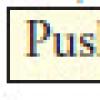|
|
Test Automation Grows Up Can software test automation ever replace manual software testing? Dion Johnson says no, but he does think it’s time that test automation is recognized as a mature discipline with its own body of knowledge. This ABOK allows test-automation professionals to hone their skills and provides organizations wishing to automate a pool of able resources from which to hire.
|
|
 |
Tending Communication Paths Unfortunately, distrust is common in the relationship between managers and employees. But it doesn’t have to be. Taking the time to keep your communication path “weed free” by finding time for one-on-one communication, being open and honest, and listening to your team members’ input will cultivate an open, honest, and trusting culture within your team.
|
|
|
|
McLuhan for Testers If a tester is "somebody who knows that things can be different," then Marshall McLuhan was a tester par excellence. According to McLuhan, the English professor who proposed the Laws of Media, the message of a medium is not its content but rather its effects. Find out how this translates to software testing and how we evaluate requirements.
|
|
|
|
Developing Your Sense of Smell With all of the resources available these days—books, blogs, Webcasts, training,—that aid us in our design, are you one of those programmers who lacks the "olfactory gene" needed to detect refactoring odors in your code? Unit testing helps you refine your sense of smell and improve your code design.
|
|
|
|
Four Tips for Technique Seeking From an experience with a testing buddy in a large organization, Julie Gardiner had a career-shaping epiphany. She discovered that understanding and applying formal testing techniques can help you grow as a testing professional, and she has incorporated that knowledge into her management repertoire ever since. Learn four ways you can get started using formal testing techniques with your team.
|
|
 |
Transform Your Software Bring out the best in your code. Systematic code transformations are an important tool for test-driven development. Refactoring and generalization—common code transformations in TDD—improve the code while preserving its behavior and broaden the capabilities of the software. Each technique has its place, and together they help make TDD effective.
|
|
 |
What's on Your Dashboard? Just because a metric is easy to capture doesn't mean it is useful. The metrics that are really needed are the ones that can help you make good decisions. Find out how to establish a project dashboard with meaningful metrics that will guide your project safely to its destination without getting bogged down in an endless pursuit of unnecessary information.
|
|
 |
Pairwise Testing: An Easy Guide to Orthogonal Arrays & All-Pairs Combinations One of the testing challenges we face is how to handle the large numbers of test cases we sometimes need to create and execute. We can't test everything, but pairwise testing using orthogonal arrays or an all-pairs algorithm can help generate pair combinations that reduce the number of test cases we run while still finding a large percentage of bugs.
|
|
|
|
The Secret to Software Development In the wake of Rhonda Byrne's bestseller The Secret, Carol Dekkers examines whether the theories behind Byrne's blockbuster can be applied to software development. Can the Law of Attraction and positive energy really be all it takes for successful, positive project results—or is that just wishful thinking?
|
|
|
|
The Lecture Whether you're being admonished for having more than ten items in the express lane at the supermarket or you are telling off a tester for missing a bug, at some point we've all been on the giving and on the receiving end of The Lecture. We're all human and fallible. Isn't there a more effective (and mature) way to communicate when a problem arises?
|
|
